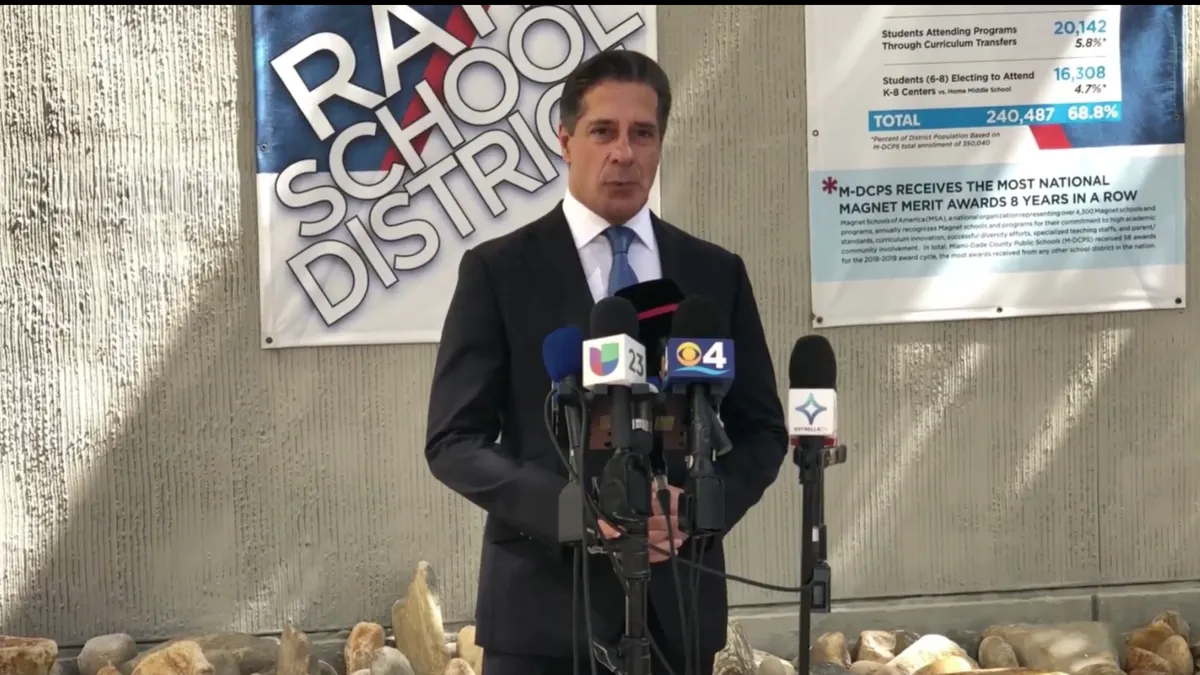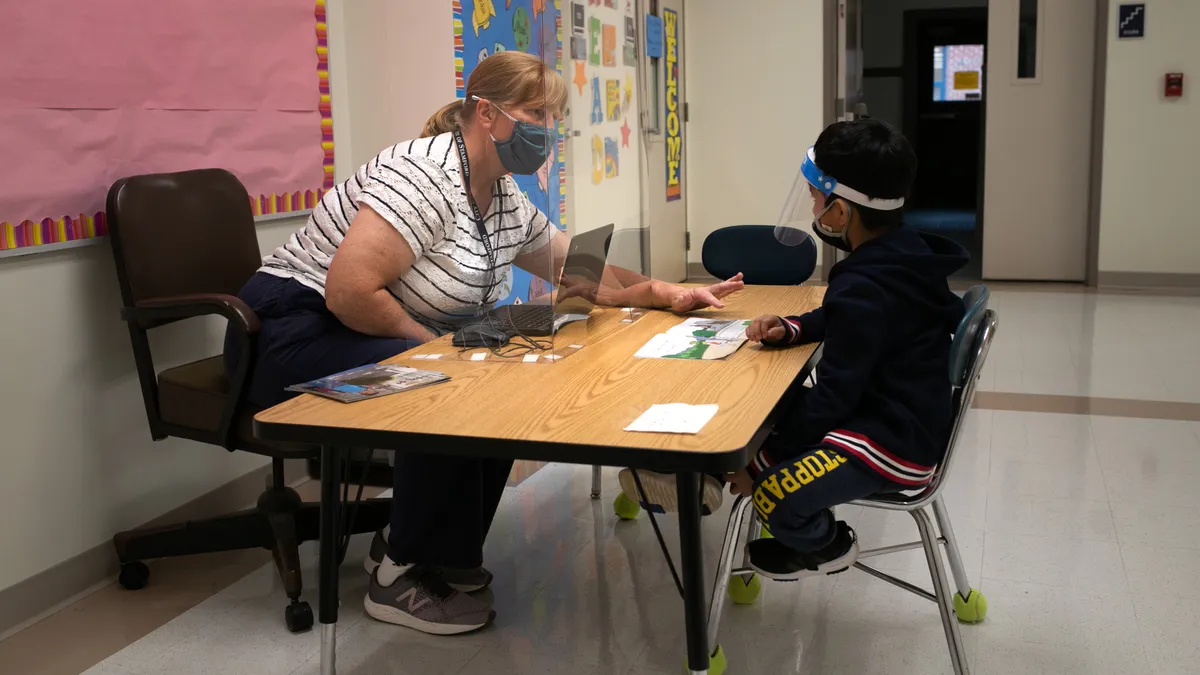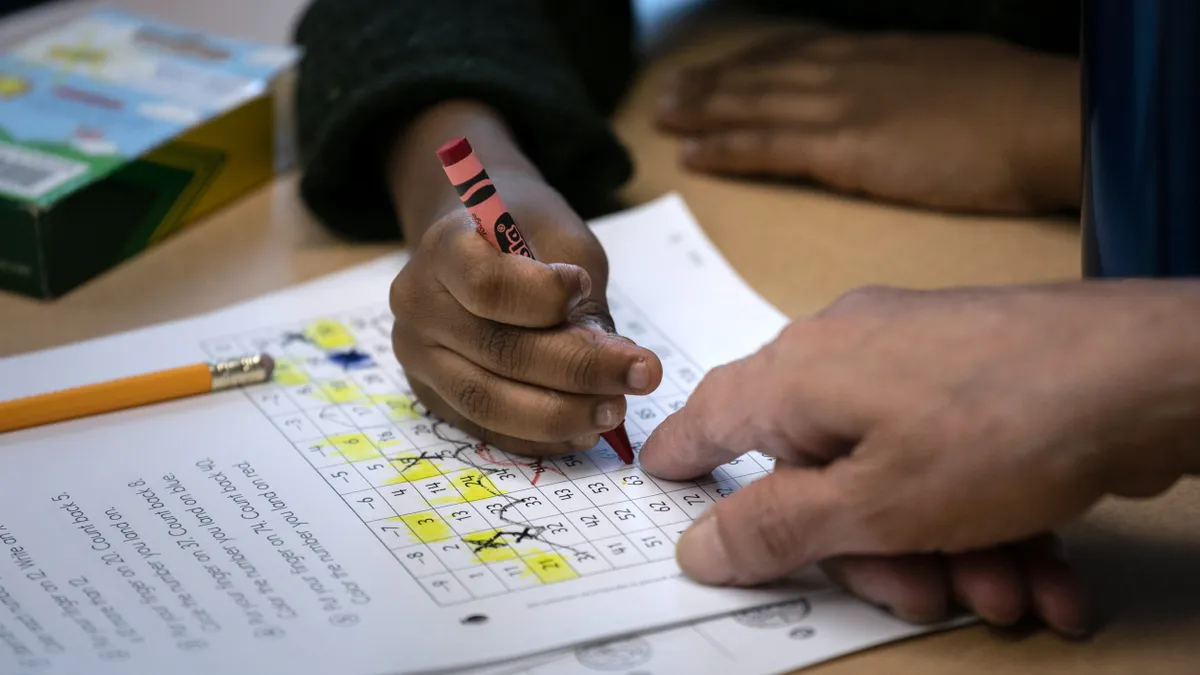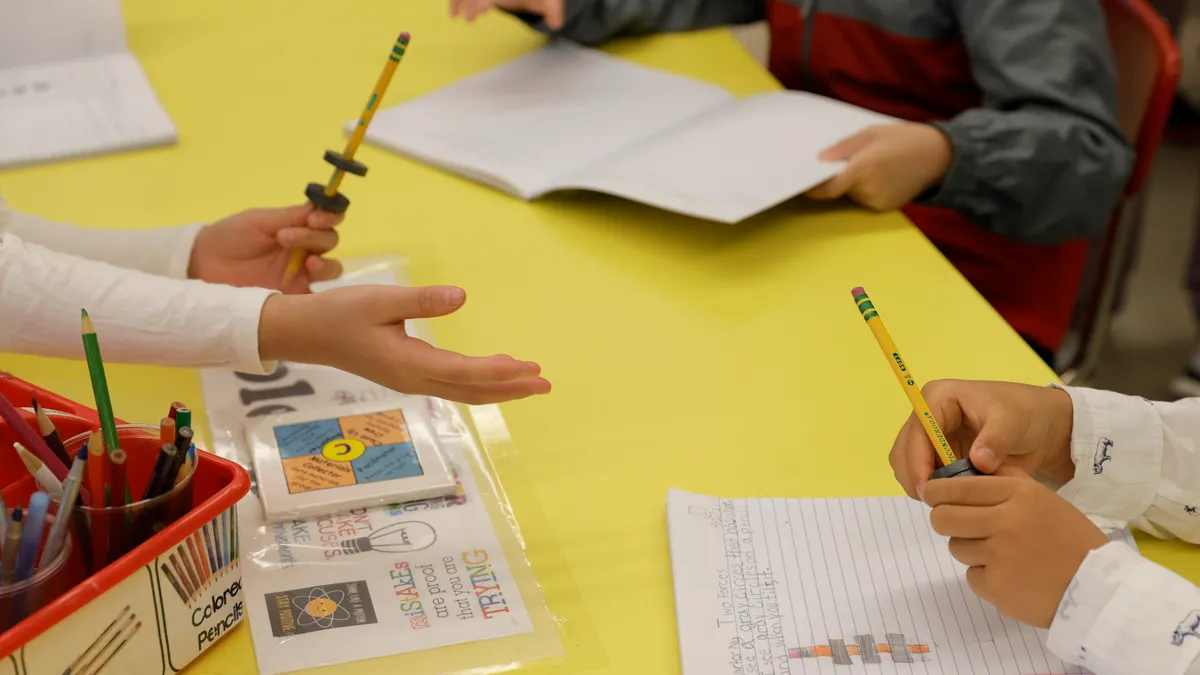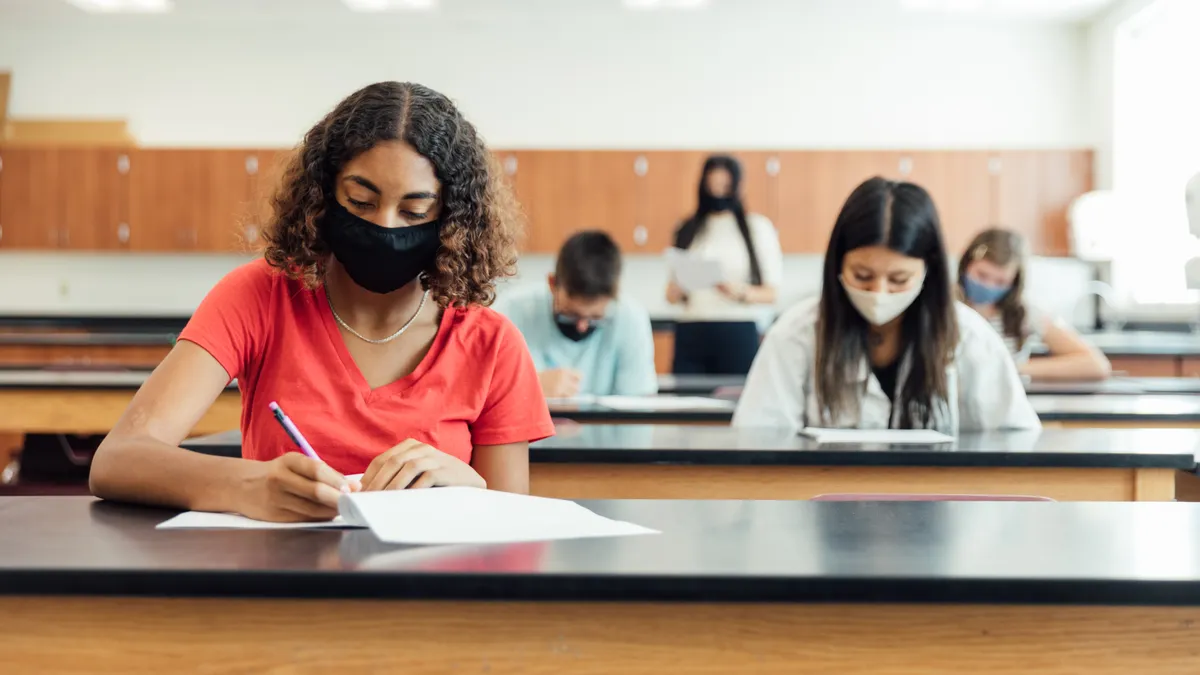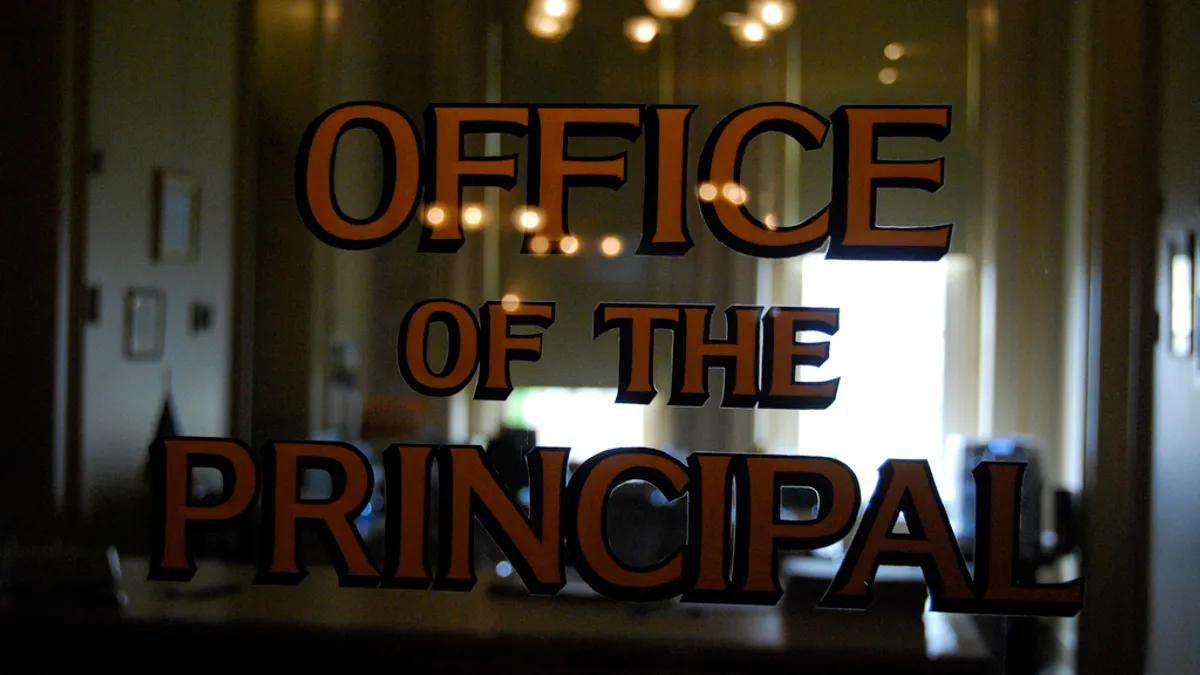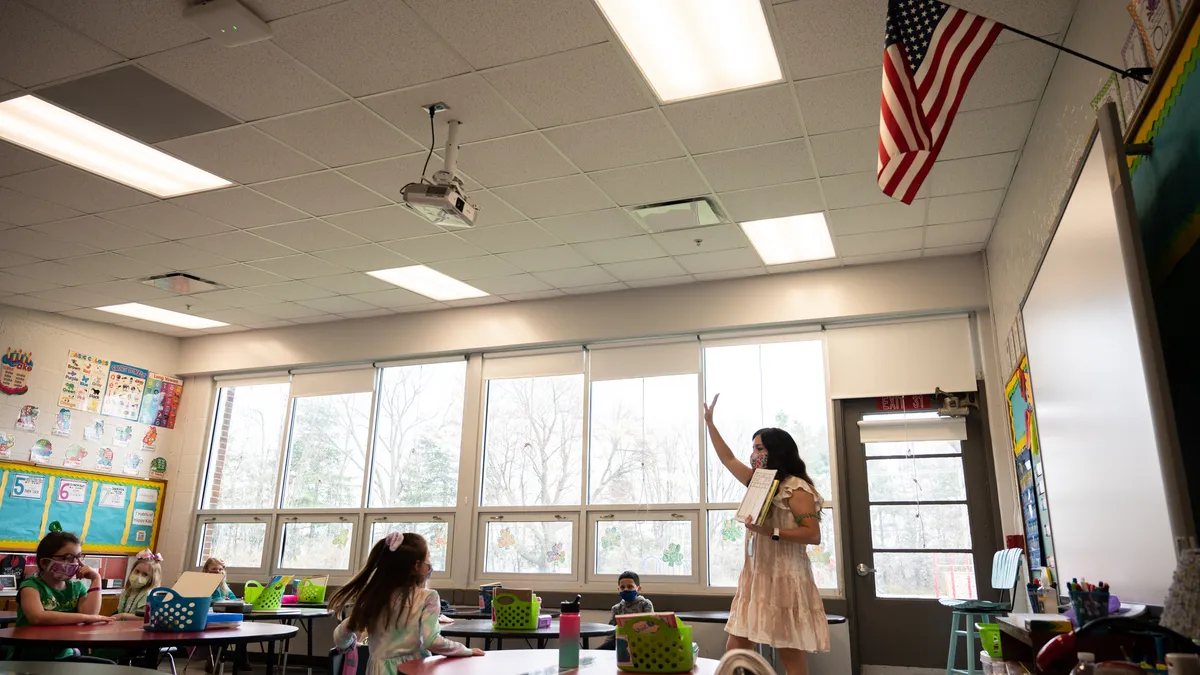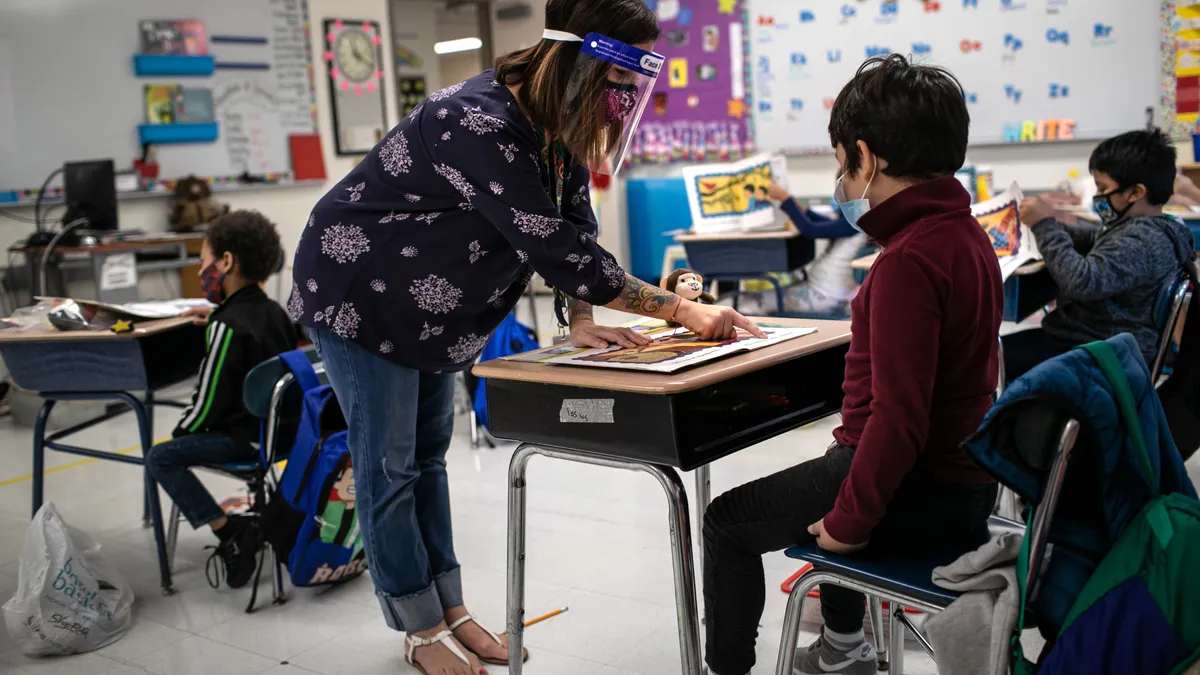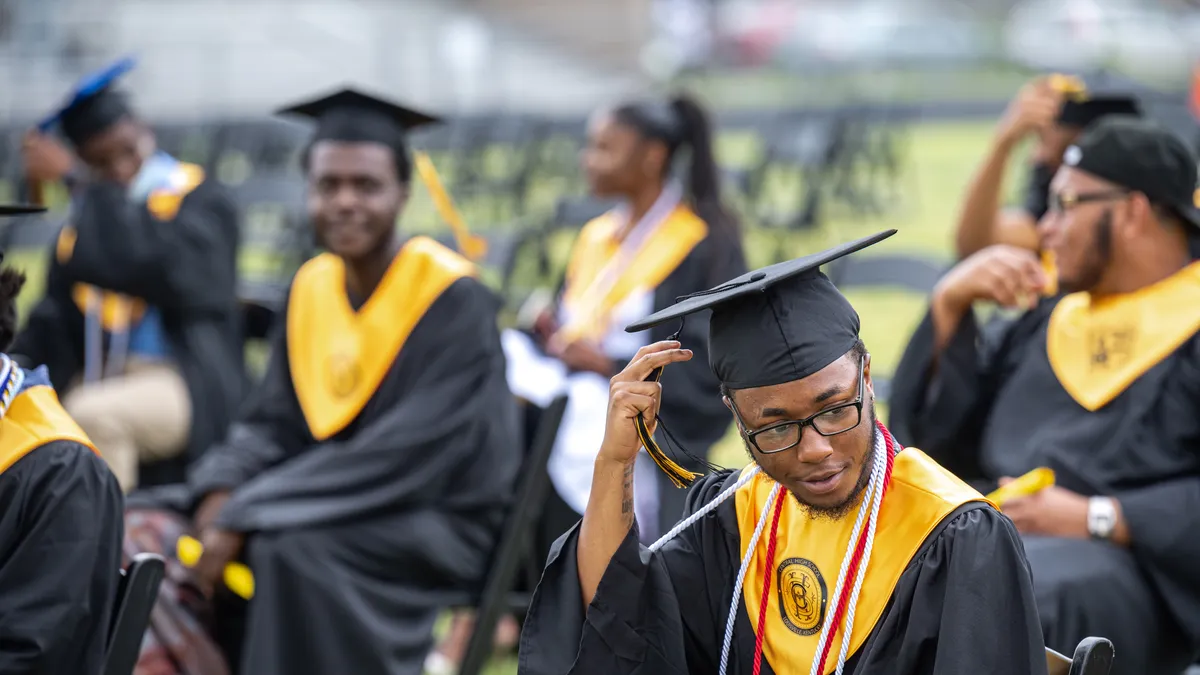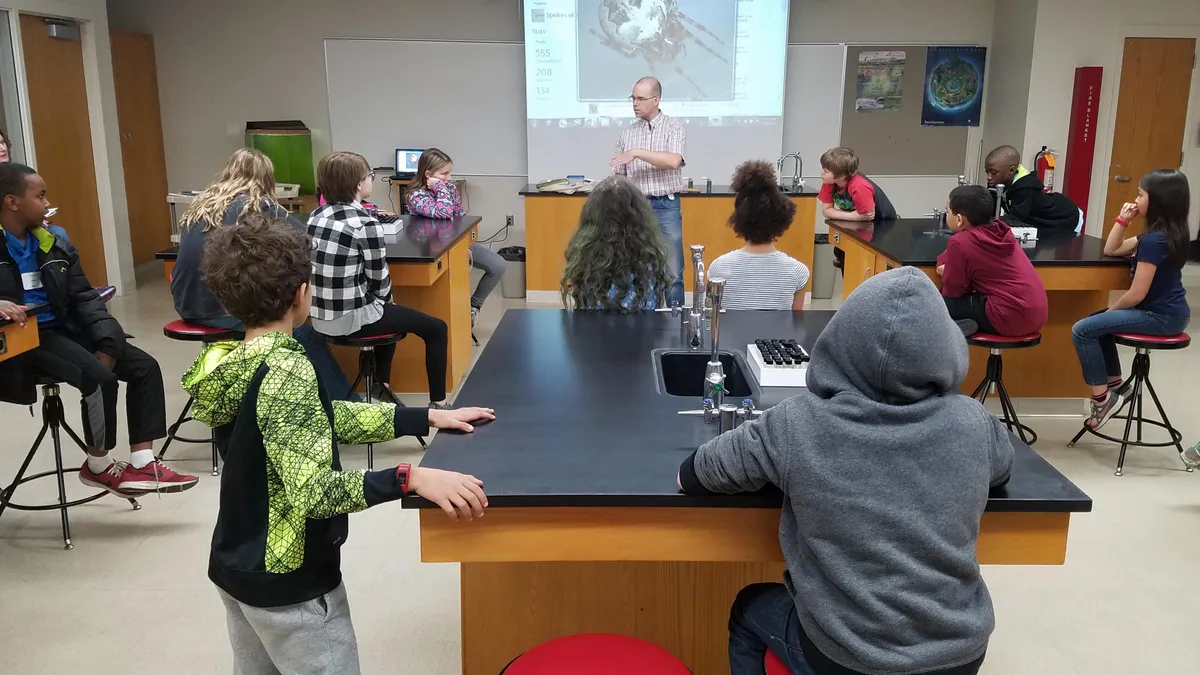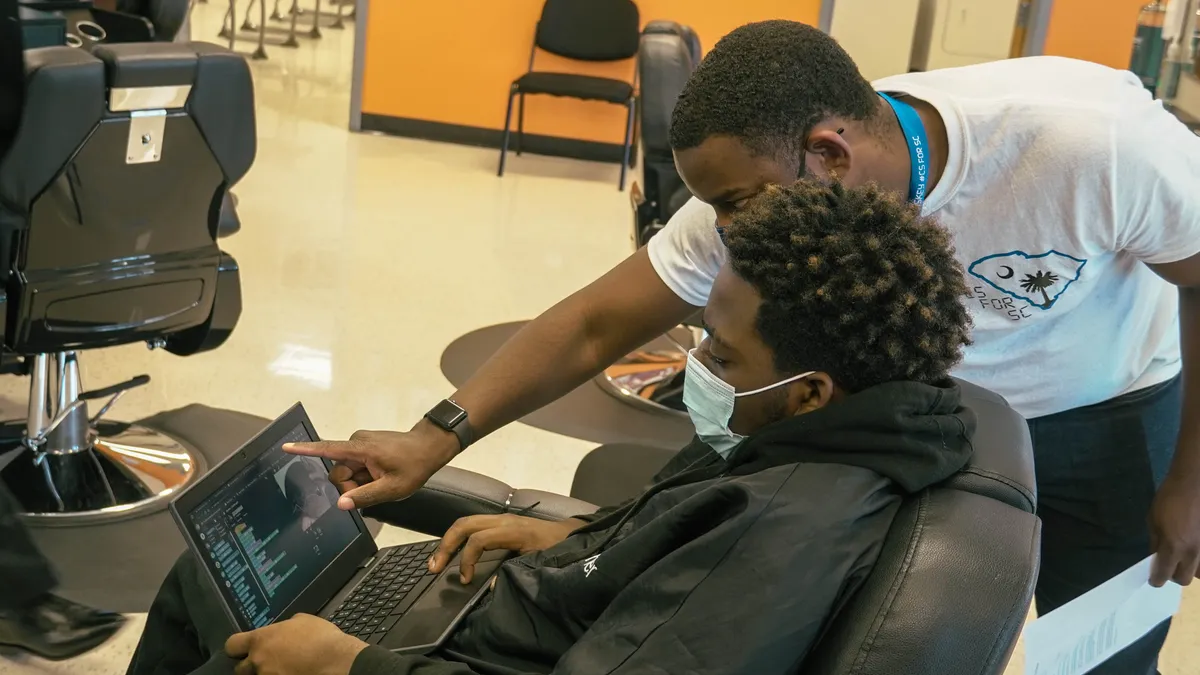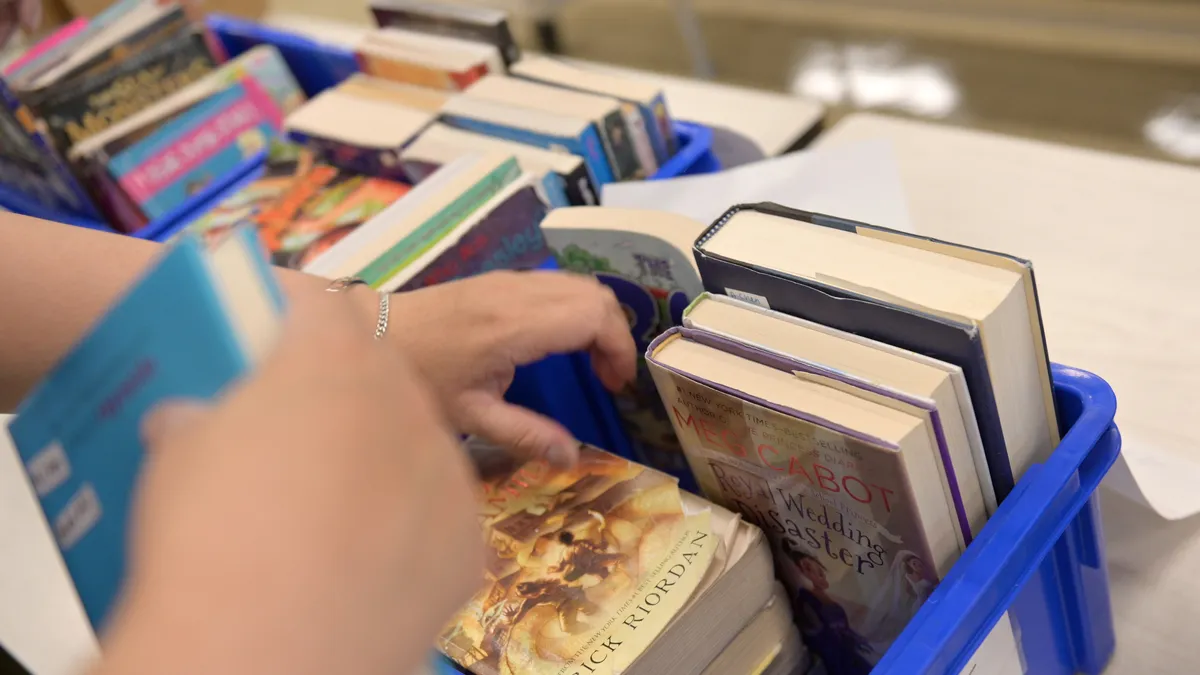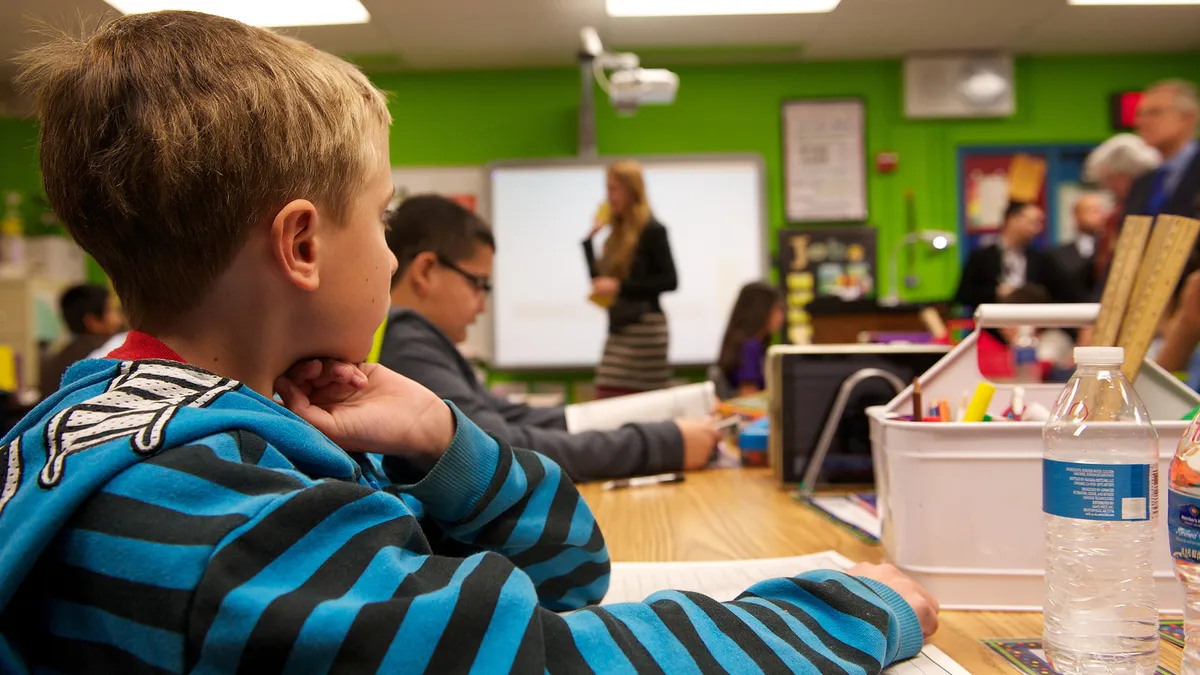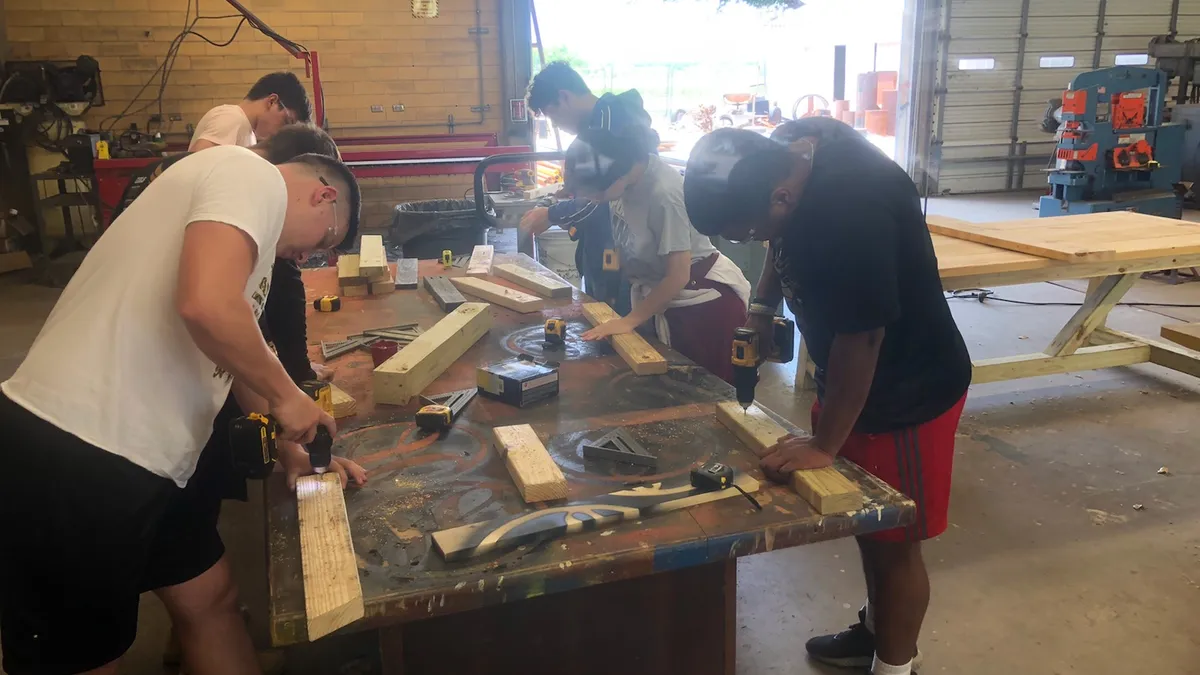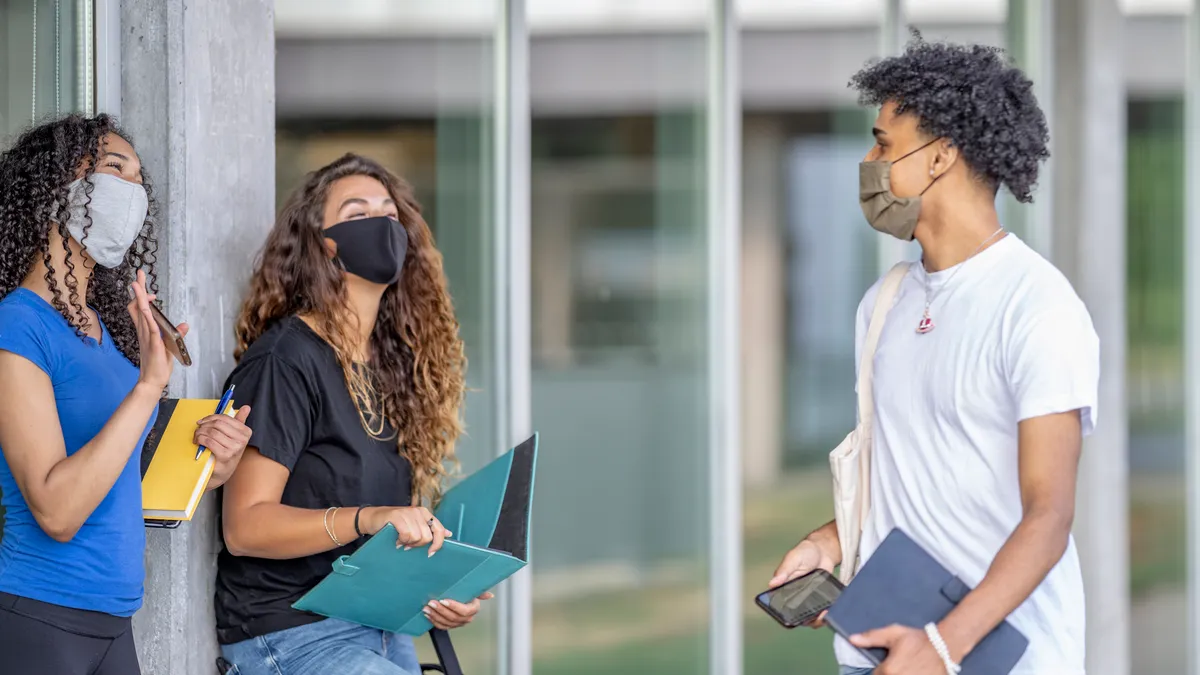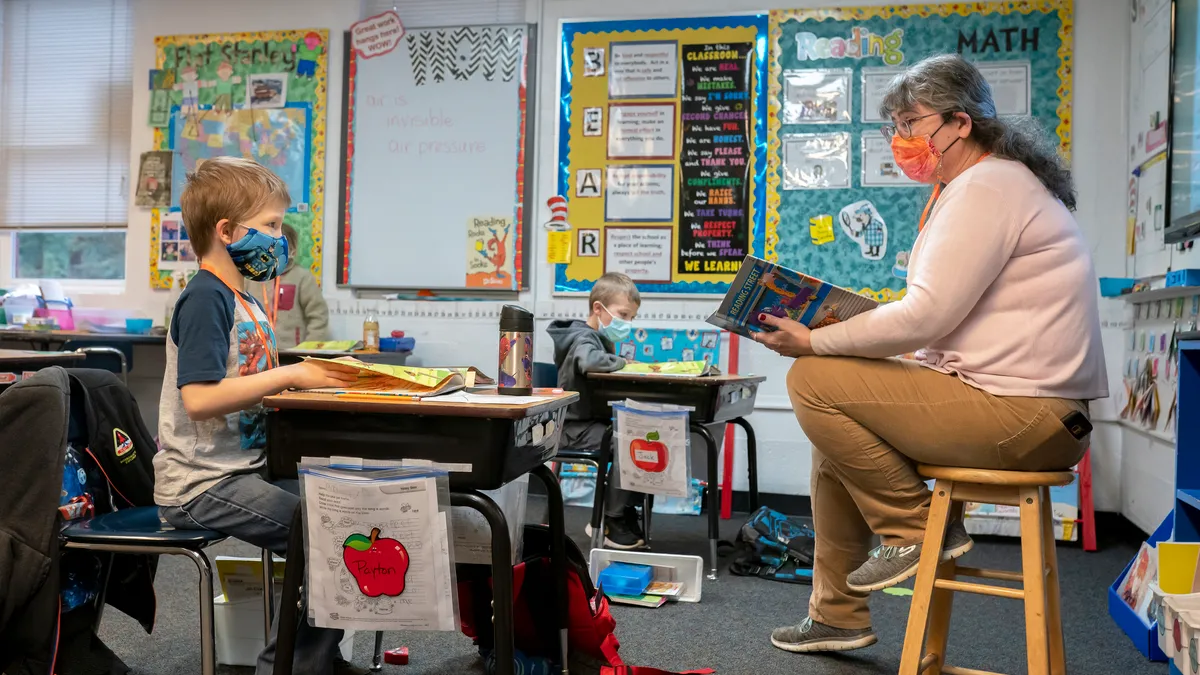Curriculum: Page 40
-
5 superintendents to watch in 2022
These administrators' track records and outlooks toward top issues facing K-12 and the challenges ahead make them key players to keep an eye on.
By Roger Riddell • Jan. 10, 2022 -
Opinion
3 inclusive education myths busted
A district assistive technology specialist writes that removing barriers for diverse students requires overcoming pervasive narratives in learning.
By Jamie Maier • Jan. 6, 2022 -
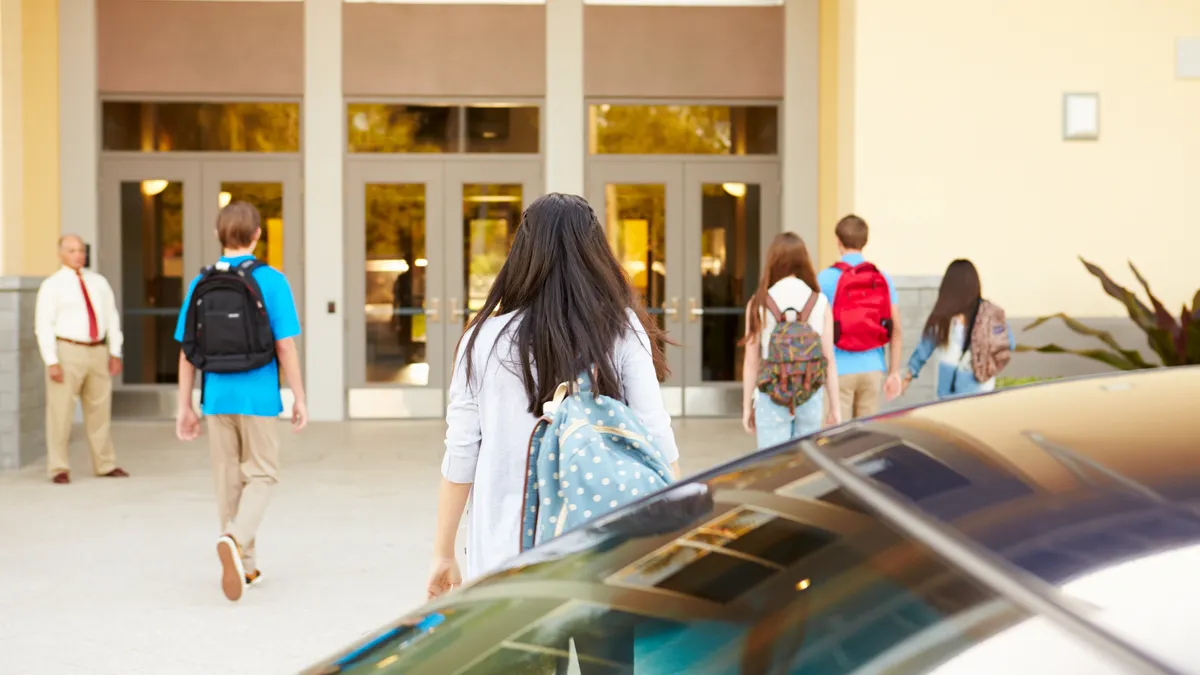 Explore the Trendline➔
Explore the Trendline➔
 Getty Images
Getty Images Trendline
TrendlineTop 5 stories from K-12 Dive
K-12 Dive has gathered some a selection of our best coverage as a one-stop resource on the trends to watch in the months ahead.
By K-12 Dive staff -
Focusing on problem-solving in math improves understanding
One expert suggests breaking topics into actionable steps to boost students' confidence amid pandemic setbacks.
By Shawna De La Rosa • Jan. 5, 2022 -
3 ways district leaders are adapting pandemic learning experiences
From new grading systems to an increased focus on flexibility, superintendents are shifting virtual learning tools and approaches for in-person use.
By Lauren Barack • Jan. 5, 2022 -
8 K-12 trends to watch in 2022
Fallout from the COVID-19 pandemic, ongoing policy pingpong, curricular controversy and more are set to impact schools this year.
By Roger Riddell , Kara Arundel , Naaz Modan , Anna Merod • Jan. 4, 2022 -
LESSONS IN LEADERSHIP
Lessons In Leadership: 6 key takeaways from a year of school leader conversations
In case you missed any of this year's installments, we've highlighted some of the best insights on teacher retention, student engagement and more.
By Roger Riddell • Jan. 3, 2022 -
3 strategies can help students strengthen self-motivation
Providing student choice and opportunities for small "wins" along the way to a goal can be critical factors for engaging students in learning.
By Lauren Barack • Dec. 22, 2021 -

 Bjork, Marten. Retrieved from Unsplash.
Bjork, Marten. Retrieved from Unsplash.
Schools encouraged to help students have positive social media experiences
Focus is growing on digital citizenship following social media-influenced threats of violence and acts of school destruction.
By Kara Arundel • Dec. 22, 2021 -
As learning lags for second year, how long will it take to bounce back?
Data suggests achievement gaps have widened by about a third as learning continues to slow for the lowest-performing students.
By Naaz Modan • Dec. 22, 2021 -
K-12 to career pathways data can inform practices for current students
Analyzing outcomes data of former students can improve future postsecondary transitions, but the data isn't always easy to find.
By Kara Arundel • Dec. 15, 2021 -
What lessons can schools learn from national parks?
Adopting audience-centered strategies used by park rangers during tours can help educators shift to student-centered learning models.
By Lauren Barack • Dec. 15, 2021 -
How Disney's magic can inspire students in STEAM
From the physics behind a roller coaster to the engineering in a light projection show, Disney parks offer a variety of STEAM lessons on- and offsite.
By Lauren Barack • Dec. 8, 2021 -
Helping students develop voice equips them with lifelong self-advocacy skills
Educators can employ a variety of strategies to help learners express their needs and share ideas as early as kindergarten.
By Lauren Barack • Dec. 8, 2021 -
Coding and barbering event aims to broaden Black student participation in computer science
Students in South Carolina are learning a unique approach to barbering by coding hair designs in their barbershop class.
By Anna Merod • Dec. 8, 2021 -
Ed Dept announces communities of practice to accelerate learning, support kindergarteners
The collaborations are designed to push proven practices forward to facilitate student achievement.
By Kara Arundel • Dec. 3, 2021 -
Reading Reimagined attempts to take complexity out of literacy interventions
The project aims to provide research-based curriculum and tools to help underserved students become successful readers.
By Kara Arundel • Dec. 1, 2021 -
Multiyear projects expand opportunities for deeper learning, soft skill development
Managing the breadth and depth of a longer project can help students build skills that will benefit them in the workforce.
By Lauren Barack • Dec. 1, 2021 -
Alleviating students' fear of asking for help can build growth mindset
When students get that a lack of understanding is a step on the path to mastery and not the end of the road, they may embrace tougher academic challenges.
By Shawna De La Rosa • Nov. 24, 2021 -
Big-picture targets give students more control in deep learning
Deep learning is considered crucial to preparing students for handling and connecting complex problems and ideas.
By Lauren Barack • Nov. 24, 2021 -
Dive Awards
The K-12 Dive Awards for 2021
With community engagement, steadfast leadership and focus on students' social-emotional needs, these are the leaders shaping K-12 today.
Nov. 22, 2021 -
PROMISING PRACTICES
Promising Practices: Rural Texas districts collaborate to expand CTE
Three neighboring districts with small student populations found cost savings in collaborating on course offerings.
By Kara Arundel • Nov. 19, 2021 -
Teaching assistants prove valuable for academic gains in early readers
An Alabama elementary school's use of trained Title I aides resulted in some of the highest reading scores among the state's mid- to high-poverty districts.
By Shawna De La Rosa • Nov. 18, 2021 -
Statistics instruction on the rise as data drives more decisions
Real-life lessons based on data can drive up student engagement and understanding, statistics experts say.
By Kara Arundel • Nov. 17, 2021 -
SEL can strengthen the soft skills employers seek
Social-emotional learning improves students' abilities to collaborate effectively with peers from different backgrounds, in school and future careers.
By Lauren Barack • Nov. 17, 2021 -
California district personalizes special education to address learning loss
The San Bernardino City Unified School District uses detailed student progress data to help students with disabilities reach individualized goals.
By Kara Arundel • Nov. 17, 2021
